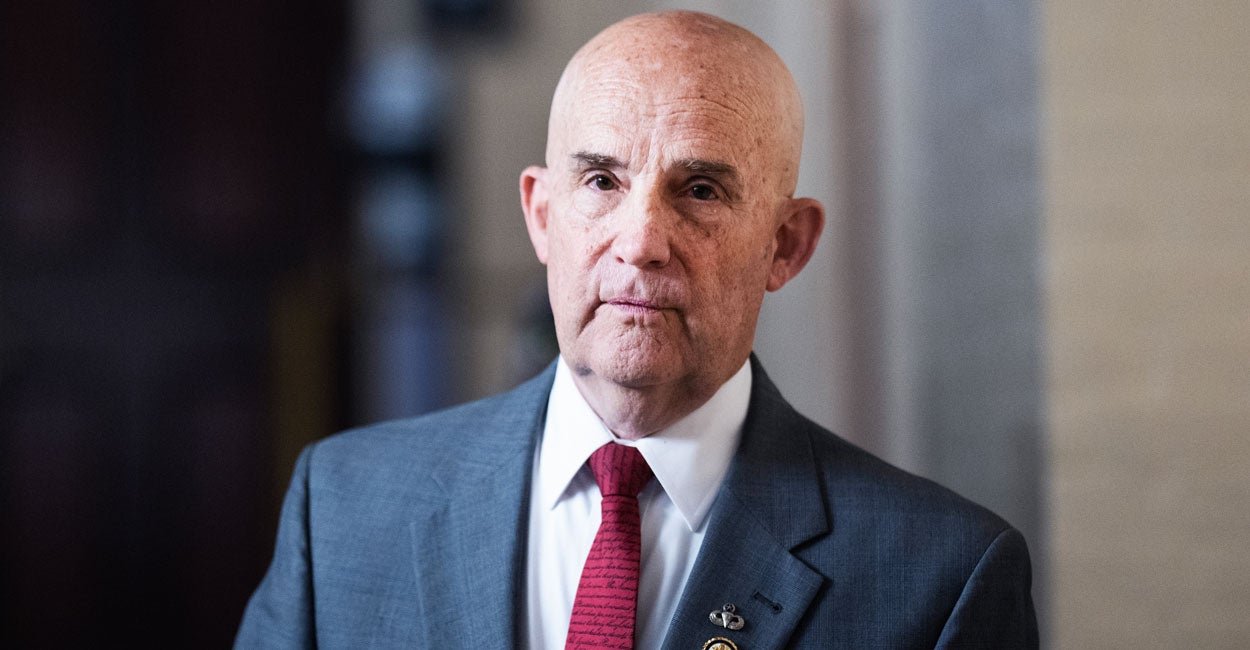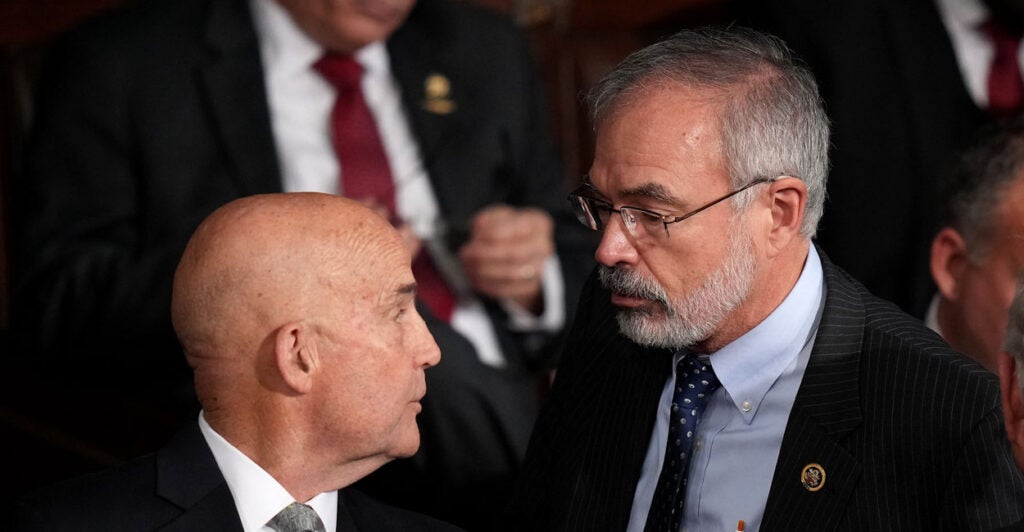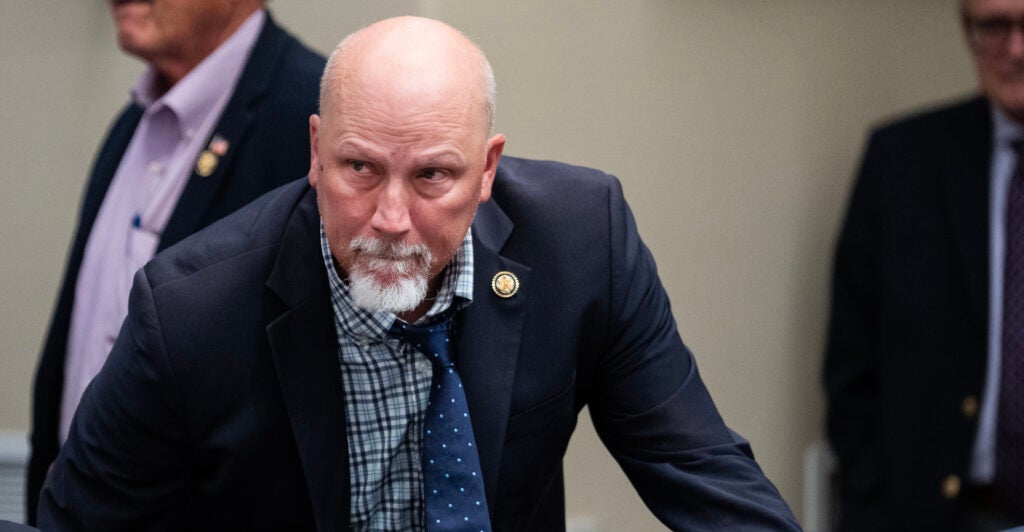Why This Republican Lawmaker Is a ‘No’ for Now on ‘Big, Beautiful Bill’

Texas Republican Rep. Keith Self would vote against his party’s budget reconciliation bill as it currently stands.
“I am a ‘no’ at the moment,” he told The Daily Signal.
Months in the making, the bill would extend President Donald Trump’s first-term 2017 tax cuts and fulfill campaign promises, such as fully funding border security.
But why do Self and other fiscal hawks say they would vote down the bill as it stands today? For him, the bill falls short of earlier promises of restoring fiscal balance.
“The big picture was the framework that we had, which basically was $4.5 trillion in tax cuts. Assuming $2.5 trillion in growth from the tax cuts, which means we needed to find $2 trillion in spending cuts,” he said of his original hopes for the bill.
Now, Self says, current plans would give them “probably less than $1.5 trillion savings” and that tax cuts are down to $3.8 trillion—a situation which he feels dishonors previous promises.
Self is one of a handful of members of the conservative House Freedom Caucus saying they won’t back the bill unless substantial changes are made to increase savings.
And leadership won’t be able to ignore him and his fellow fiscal hard-liners, because of the razor-thin GOP majority in the House. Republicans can only lose three votes and still be able to pass the bill. On Friday, the entire bill was stalled by five Republicans on the Budget Committee alone.
He is now demanding two major changes in the bill—curtailing the growth of Medicaid and ending Biden-era green energy subsidies.
Self would like to see the government lower its matching of state payments to Medicaid expansion enrollees, a policy he contends would hold the program to its original purpose.

“Medicaid is meant for pregnant women, children, seniors, and disabled … . During COVID, we allowed both illegals and able-bodied adults to get on Medicaid. So … the federal government reimburses $9 for every [state-paid] dollar for able-bodied adults. For pregnant women, children, disabled, and seniors, it’s $1.33.”
Self is also dissatisfied with the fact that many of the bill’s new work requirements—which on paper are said to save billions—wouldn’t go into effect until 2029.
He said that postponement means that the reforms won’t end up happening at all.
“If you have the reforms start in 2029 or even further out, they’re not going to happen. Because again, that’s fantasyland in Washington, D.C.,” he said.
Additionally, the Texas lawmaker is disappointed in how the bill continues many of the green-energy subsidies that were written into law by former President Joe Biden’s Inflation Reduction Act.
“Look, President Trump campaigned on it. I campaigned on it. A lot of the Republicans campaigned on repealing the [Inflation Reduction Act],” he said.
Self said some of his colleagues are “saying that you can’t cut if off immediately. You have to phase it down, because they say they have projects that have been planned.”
But Self, from an oil-rich state, views the continuation of those provisions as a detriment to his state.
“Texas, my own state, has hurt our grid by having so much wind and solar now … . What we are subsidizing is not dispatchable power because—lo and behold—when it gets dark, you don’t get solar power.”
He’s far from alone in those criticisms. On Friday, five Republican fiscal hawks voted against advancing the budget through the House Budget Committee on almost exactly the same grounds.
Reconvening Sunday, four of the conservatives switched their votes to ‘present’ after negotiations with leadership, allowing it to advance.
“I wasn’t there, but what I understand from the morning’s conversation amongst everybody is that enough progress was made that they’re willing to vote ‘present,’ but they are not willing to vote ‘yes’ yet,” Self told The Daily Signal.
“And there are some of us that are not, because we haven’t answered some of these Medicaid reform issues and the [Inflation Reducation Act] issue,” he continued.

There’s another issue that could throw a wrench into the Republicans’ machine—state and local tax deductions (SALT).
Raising the cap on the ability to deduct local taxes from federal taxes is an important matter for Republicans who represent wealthy constituents in blue states.
Four New York Republicans are demanding an increase in the SALT deduction cap as a nonnegotiable item. Leadership has already offered them an increase to $30,000 from the previous $10,000 cap—an offer they have rejected in favor of a $62,000 cap for individual filers.
Representatives like Mike Lawler, R-N.Y., point out that Republicans would not have a majority without seats in high-tax blue states, so winning over SALT advocates’ votes is indispensable.
“Frankly, we’ve not heard a word about SALT,” said Self. “That’s kind of gone quiet. So, what’s happening with SALT? We don’t know.”
The Texas lawmaker doesn’t think $30,000 is a realistic compromise.
“$30,000 is about $250 billion [in lost revenue],” he said.
“The 62K cap they wanted is $788 billion. Yeah, [$62,000] per person, [$124,000] for a married couple would be almost $800 billion in cost,” he said. “I don’t think it’s doable.”
Yet amid the complicated tangle of competing interests, Self suggested he remains optimistic about a more fiscally conservative bill.

“I think that we are starting to see people understand just how important spending cuts are. That’s headway,” he said.
Self also urged Republicans not to be afraid of bad press when restructuring Medicaid. Radical reforms to the program might be difficult with tight majorities in both House of Congress.
Rep. Don Bacon, R-Neb., and Sen. Josh Hawley R-Mo. have already cautioned against major spending cuts in this area.
“Look, we’re getting lots of negative press over the little bit that we’re trying to do with Medicaid,” he said. “So, why don’t we just do what we need to do with Medicaid, because the Democrats are going to scream and throw a hissy fit anyway, regardless of what we do?”
The post Why This Republican Lawmaker Is a ‘No’ for Now on ‘Big, Beautiful Bill’ appeared first on The Daily Signal.
Originally Published at Daily Wire, Daily Signal, or The Blaze
What's Your Reaction?
 Like
0
Like
0
 Dislike
0
Dislike
0
 Love
0
Love
0
 Funny
0
Funny
0
 Angry
0
Angry
0
 Sad
0
Sad
0
 Wow
0
Wow
0












































































